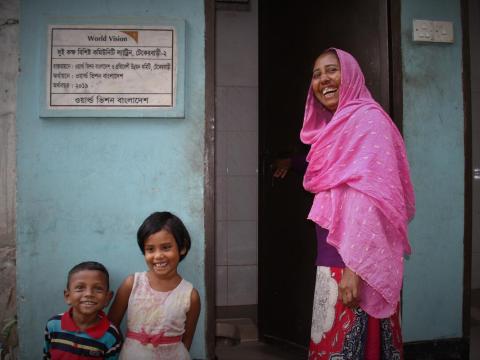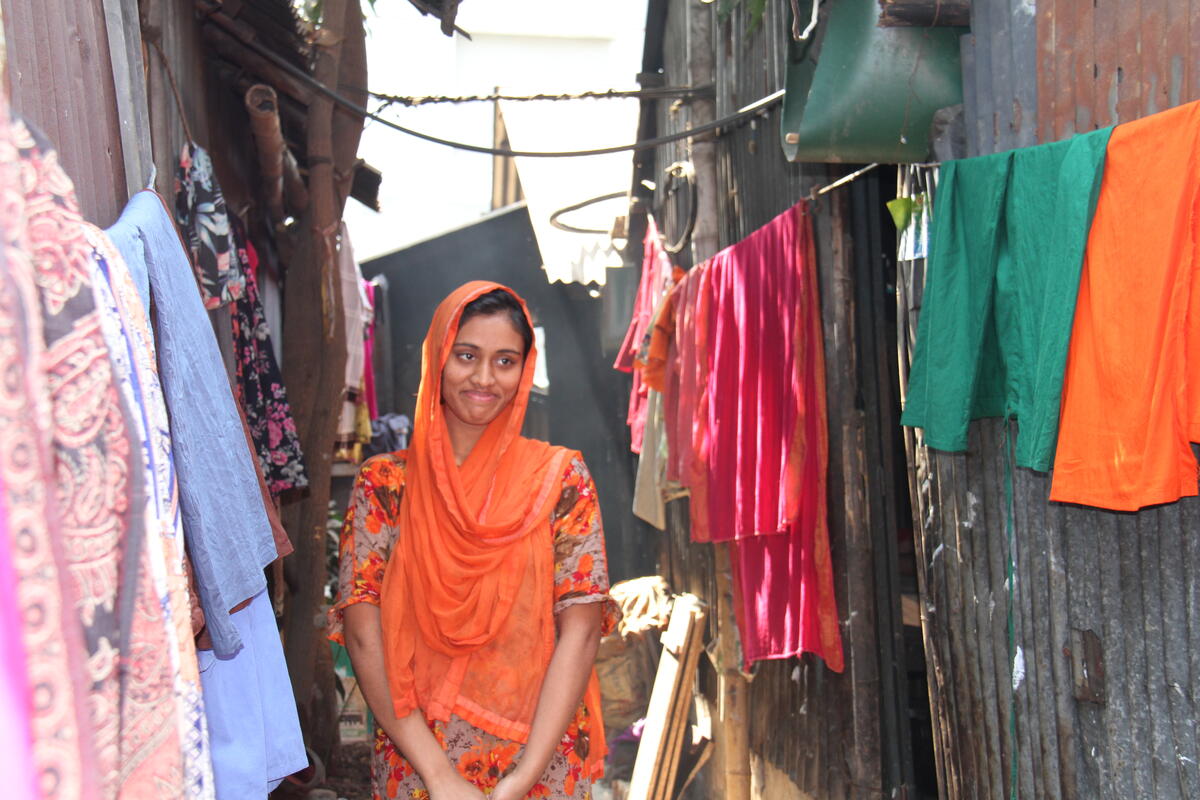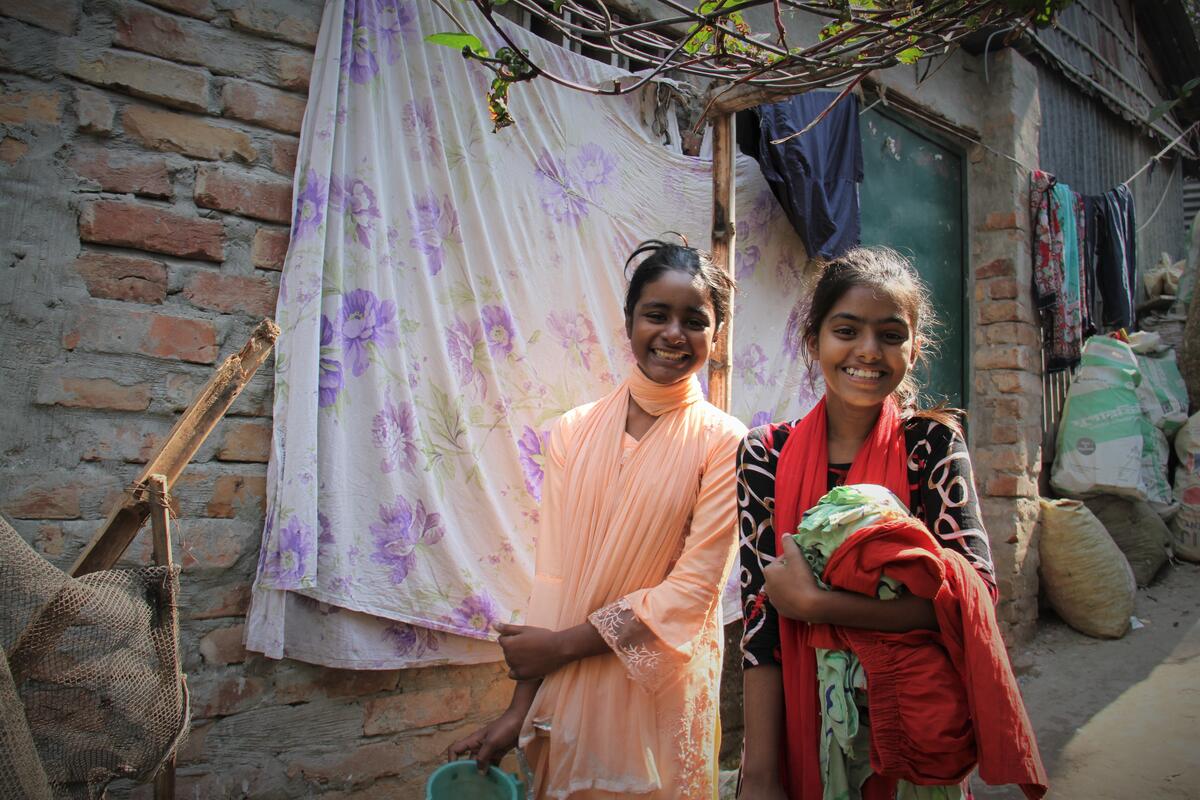Managing menstruation in the slums of Bangladesh

Menstruation becomes a part of every girl’s life. But, for girls living in the slums of Bangladesh’s densely populated Dhaka city, menstruation is sometimes a curse.
“During my first period I was very scared. My mother gave me a portion of her used ragged shari [traditional women's attire] and showed me how to use it," 19-year-old Suraiya tells us.
The former child forum member recalls, "I was embarrassed to handle the whole thing for a long time! We did not have any washrooms where we could clean or change our clothes. It was challenging not to have a supply of clean water."

The lack of a proper place to dispose of the menstrual hygiene materials is a serious issue that badly affects the life of girls living in the urban slum settlement, Suraiya says.
Fourteen-year-old Mim, on the other hand, had her first period in January. Although she lives in the same community, she was able to handle her first experience confidently, because she had access to the necessary hygiene facilities.
"I did not inform my mother immediately, I called one of my cousins and she helped me managing the sanitary pad,” says Mim boldly.
During the COVID-19 pandemic, she received a menstrual hygiene kit from World Vision Bangladesh. At the distribution centre, World Vision facilitators oriented her about the necessity, use, and disposal procedures.

Just a few years back, water logging due to heavy and longer rainfall was a common phenomenon for residents here.
Just 10 years ago, waste was disposed of in the street due to the lack of solid waste management facilities. The sewerage line and drainage systems became blocked. Water supplies and sanitation facilities were unavailable.
World Vision, with our partner organisations, has established 48 toilets, 89 water lines, 36 water reserves, and 29 bathing places for more than 500 residents of this community.
“Waterlogging due to rain is no longer a challenge for this community like before,” says Amrin Hossain Aney, a facilitator of World Vision Bangladesh working to improve WASH facilities.